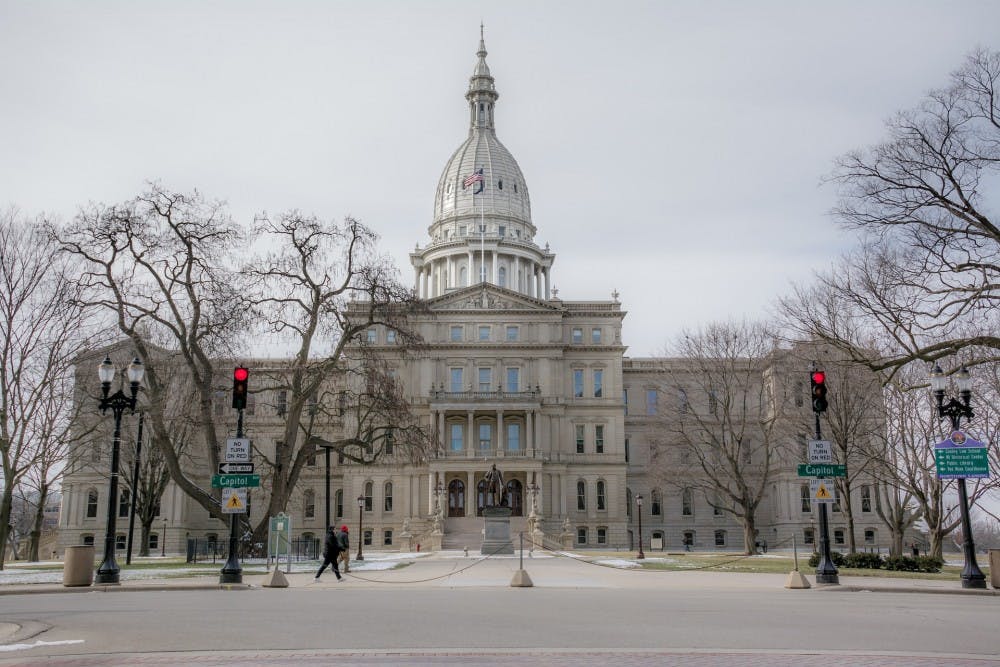Minimum wage increase might have benefits and drawbacks for students
A minimum wage bill recently passed in the Michigan legislature might have drawbacks and benefits for students, according to Central Michigan University professors.
The bill, called the Improved Workforce Opportunity Wage Act, was initially a ballot initiative campaigned for by the Michigan One Fair Wage organization. One Fair Wage is an organization that pushes for a living wage for all workers, whether they’re tip workers or non-tip workers.
“This ballot initiative was a grassroots movement to address wage disparity between non-tip workers, and tip workers,” said Pete Vargas, the campaign manager of Michigan One Fair Wage.
The bill, as it stands, will raise the minimum wage for non-tip workers from $9.25 per hour to $12 per hour by 2022, according to Vargas. He said tip workers will also see a rise in wages, from the $3.52 an hour, to the $12 within the next six years.
Michigan Congress voted the ballot initiative into law on Sept. 5, alongside another ballot initiative that would give Michigan workers more sick leave time. The voting however was highly unconventional. According to MichiganVotes.org, almost all the Republicans in the House and Senate voted for raising the minimum wage, while most of the Democrats voted against it.
Both Republican Rep. Roger Hauck, and republican Sen. Judy Emmons, voted for the bill. Central Michigan Life reached out to them to see why they voted for the bill, but they did not respond.
Richard Hill, a CMU economics professor, said an increase in minimum wage will have negative effects on student employment.
He said students working minimum wage jobs will be affected by cutbacks on hours and that unemployment rates might rise due to fewer jobs being available. At the same time, demands for higher-paying jobs might increase, Hill said.
“When the wage rate goes up, fewer jobs are offered, but more people want to enter the labor force because of the higher wage rates, so there’s an increase in unemployment,” Hill said.
Hill also said this could lead to students not getting their previous jobs back after summer break. He said since businesses will not be able to sustain the same number of jobs after the wage increases so there may be fewer jobs available when students come back to school.
The effects depend on the area where wages increase, Hill said. In places like Seattle, Washington, where the cost of living is higher, an increase in the minimum wage might have minimal effects, he said. However, there could be worse effects to more rural areas. What might work for Detroit, might not work for Mount Pleasant, he said.
David Jesuit, current chair of the political science department, does not view this bill as a major change. He said raising the minimum wage about four dollars over a period of four years is insignificant. Factoring in inflation, unemployment, layoffs, and small businesses will most likely be unaffected. He said the bill may help workers, but the effects will be minimal.
“This is not a livable wage,” Jesuit said. “Three dollars over four years? That’s hardly generous.”
Since most student workers earn minimum wage, Jesuit said, students will benefit from increased wages.
Students at CMU share these same hopes and concerns. For instance, Jackson senior Tyler Beebe said that overall he views the increase as a positive thing. He thinks that this bill will help low-income families who may not be able to get higher-paying jobs.
Sterling Heights freshman Larissa Brown also said she believes the bill will help low-income families support themselves.
Clawson freshman Julia Fisher said that the jump from $9.25 to $12 an hour is too big of a jump. She said it’s not fair to college students who get a degree that gets them a job earning around the same amount of money.
Bay City freshman AJ Rezmer also shares these concerns.
“I sacrifice time and money to get where I am,” Rezmer said. “A ditch digger shouldn’t have the same pay (as college graduates) for doing nothing (after) coming out of high school and going right into the work field. If I had known that, I would have done that.”
Fisher and Rezmer both said they worry about how much products might cost after businesses have to pay their workers more.
Brown and Beebe both said they don't mind if people who don’t have college degrees are paid the same amount as them once they graduate.
However, the bill may be changed before any of its effects take place.
Vargas said his predominant concern is that Republicans, also known as the GOP, voted for the bill so they can change or “gut” the bill after this year’s mid-term elections. Vargas also said he thinks the Democrats who voted against it did so to stop republicans from being able to change it.
“We know that the GOP-controlled Senate and House have eluded and brazenly threatened their intention of adopting and gutting it in the lame-duck session,” Vargas said.
Lame-duck refers to the end of a legislative session when a new legislature has been voted in, but the current session is still active.
Hill said he believes the bill will be changed by Republicans.
Vargas said changing a ballot initiative voted into law during the same legislative session – a term of a congress – would violate the Michigan constitution, citing a 1964 interpretation made by former Michigan Attorney General, Frank Kelly.
In the interpretation, Kelly said a legislature adopting a ballot initiative into law, and changing it during the same session, would violate the "spirit" of Article II, Sec. 9 of the Michigan Constitution.
Vargas said Michigan One Fair Wage plans to sue the legislature if they change the bill in the lame-duck session.
Kyla Stepp, a CMU political science professor who teaches constitutional law, said the attorney general’s interpretation could be used in a lawsuit against the Michigan legislature.







